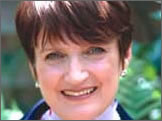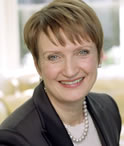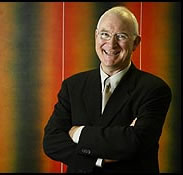![]() Now that the Government has hit the ‘go’ button for switchover there are plenty of people anxious to know how the released spectrum will be used – and thereby how we will realise the value of it for UK plc.
Now that the Government has hit the ‘go’ button for switchover there are plenty of people anxious to know how the released spectrum will be used – and thereby how we will realise the value of it for UK plc.
In an attempt to address this issue Ofcom announced today the beginning of the Digital Dividend Review (DDR) – the project which will examine the options arising from the release of spectrum afforded by the digital switchover programme.
 Ofcom estimates that the digital switchover programme will release up to 112 MHz of spectrum in the UHF (Ultra High Frequency) band for new uses. The UHF band is prime spectrum, because it offers a technically valuable combination of capacity (bandwidth) and range.
Ofcom estimates that the digital switchover programme will release up to 112 MHz of spectrum in the UHF (Ultra High Frequency) band for new uses. The UHF band is prime spectrum, because it offers a technically valuable combination of capacity (bandwidth) and range.
Ofcom say,
“The cleared spectrum – the Digital Dividend – offers real opportunities for wireless innovation.”
The Digital Dividend could enable the launch of a wide range of different services. Ofcom’s examples include:
- New mobile services, with high quality video and interactive media delivered to handheld devices
- Wireless broadband services, with high-speed data and voice services
- Wider coverage for advanced services in remote and rural areas. This spectrum is particularly suitable for low cost, wider-area coverage
- Advanced business and broadcasting services, such as those used to support major sporting events
- Additional television channels including possible High Definition (HD) channels carried on Freeview
![]() Ofcom point out that this is not an exhaustive list – which will please HM Treasury since the greater the potential uses and users the higher the value likely to be realised from auctioning it.
Ofcom point out that this is not an exhaustive list – which will please HM Treasury since the greater the potential uses and users the higher the value likely to be realised from auctioning it.
On this point, Ofcom have a tricky job since they will have to ensure that there is enough incentive to investing the development of a particular wireless technology with no guarantee of it actually securing an allocation of the spectrum required – however it should be noted that Ofcom have stated that they will also begin work on a new auction design, with a view to ensuring that the spectrum is acquired by users who are likely to make best use of it – (i.e. best use = greatest value) – not sure how HMT will view this.
This approach means Ofcom will:
- Consider the potential uses for the available spectrum
- Set out the technical limits on spectrum use to prevent potential interference
- Draw up packages of frequencies that give flexibility to the market
- Design an efficient auction/allocation process
The proposed timetable for DDR is:
- Digital Dividend Review (DDR) begins – November 2005
- Programme team and consultants in place – end 2005
- Stakeholder meetings begin – Jan-Feb 2006
- Outcome of RRC – June 2006
- Digital Dividend Review completed – Q3 2006
- Ofcom publishes final proposals – Q4 2006
- Digital switchover programme begins – 2008
- Digital switchover programme completed – 2012
Luke Gibbs writes regularly for Ofcomwatch.
 This regional order has been determined by a technical criteria determined by the broadcasters and Ofcom. The regional order will follow ITV regions. This ensures that the impact on ITV regional advertising markets is minimised.
This regional order has been determined by a technical criteria determined by the broadcasters and Ofcom. The regional order will follow ITV regions. This ensures that the impact on ITV regional advertising markets is minimised. Comment – It is interesting that London will be switched in 2012. Same year as we host the Olympics.
Comment – It is interesting that London will be switched in 2012. Same year as we host the Olympics. From a technical perspective switchover it is not going to be a walk in the park. A phased switchover to digital by geographical area between 2008 and 2012. And we’ll only know how many people might be unable to get digital television once the analogue signal has been turned off and the digital signal boosted.
From a technical perspective switchover it is not going to be a walk in the park. A phased switchover to digital by geographical area between 2008 and 2012. And we’ll only know how many people might be unable to get digital television once the analogue signal has been turned off and the digital signal boosted. However, he did manage to mention a couple of issues which aren’t directly about himself. For example, he said the following in regard to EPG’s, searching and the gateways to information – this is already a fundamental issue for regulators and one where we all need to pay close attention as to how they look to regulate…
However, he did manage to mention a couple of issues which aren’t directly about himself. For example, he said the following in regard to EPG’s, searching and the gateways to information – this is already a fundamental issue for regulators and one where we all need to pay close attention as to how they look to regulate…